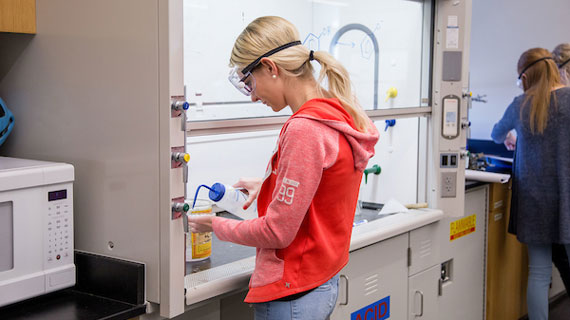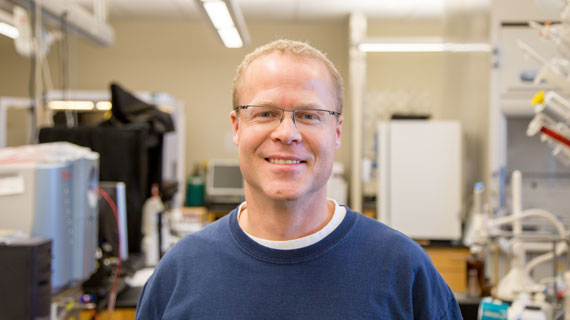10 Guidelines for Majoring in Chemistry
Posted: November 16, 2016 | Author: Lexi Carter | Read Time: 3 minutes
 Chemistry is an active discipline vital to human existence and essential to the understanding of industrial, economic, medical, biological and environmental issues. The SUU chemistry program is committed to instilling an understanding of chemistry and its relevance through quality teaching, scholarly activities and service. In a world that is becoming increasingly more technical and complex, having chemical knowledge is a must if one is to traverse his/her own unique path.
Chemistry is an active discipline vital to human existence and essential to the understanding of industrial, economic, medical, biological and environmental issues. The SUU chemistry program is committed to instilling an understanding of chemistry and its relevance through quality teaching, scholarly activities and service. In a world that is becoming increasingly more technical and complex, having chemical knowledge is a must if one is to traverse his/her own unique path.
Students study and research in modern, fully mediated wireless classrooms and laboratory facilities that are equipped with a full range of laboratory instruments.
“I chose to be a chemistry major because I love how it molded me into a better student, a feat made possible by the patience and diligence of dedicated professors,” said Sidney Vowles, recent graduate from the chemistry program. “I learned it was not necessarily whether I was ‘smart’ enough, but whether I was willing to work hard enough.”
Vowles offers 10 guidelines for those interested in becoming a chemistry major.
- Start your chemistry courses right away. It is best to have the general chemistry and organic chemistry series under your belt before taking most of the upper division classes. To do this and still graduate in four years, you need to start general chemistry right away.
- Don’t take 18 credits of chemistry in one semester. Chemistry courses are typically more difficult than your average college course. Therefore, do not plan on taking 18 credits every semester. 12 credits of chemistry courses in one semester, for example, is going to be a more challenging semester than most college students ever take.
- Gain a quality education. The professors are up to date on the latest research they are teaching and are engaged in research of their own. Having a dynamic, working knowledge of chemistry is so helpful to students once they graduate.
- Prepare for high student expectations. Students are held to high expectations in the chemistry program. Chemistry is a difficult subject matter, but instead of dumbing down the concepts professors expect students to rise to the challenge and gain a firm understanding of the material.
- Take advantage of professors’ office hours. Ask questions about concepts you don’t fully understand and gain your professor’s insight on career opportunities and side research you may be conducting.
- Plan out your semesters. If you want to graduate in four years, you are going to have to take multiple difficult chemistry courses at once. Be aware that some of the courses are only offered in the fall of even years or in the spring.
- Complete your math series through at least Calculus 2. Completion of Calculus 2 is a pre-requisite for many of the upper division chemistry courses. You may have to take higher math courses if you want to do a professional chemistry emphasis or a health care emphasis.
- Use the Gibson Fellowship for research. The Gibson Fellowship is available to students working on research. Students involved in a research project can apply for this fellowship that, if awarded, will allow them to get paid for their research hours.
- Work at the SUU Water Lab. SUU’s Water Lab provides an excellent on-campus job opportunity to learn chemistry experientially. This is a commercial lab on campus located on the second floor of the old science building where people bring in water samples from all over Iron County to have them tested. Working here is a great opportunity to study new lab techniques, acquire proper lab practices and learn analytical chemistry.
- Lots of career possibilities. Career opportunities in chemistry are diverse and multifaceted. Anything and everything we make involves chemistry in the process. Explore your options through internships and on-campus opportunities so you can be better prepared for grad school and your future career.
This article was published more than 3 years ago and might contain outdated information or broken links. As a result, its accuracy cannot be guaranteed.


